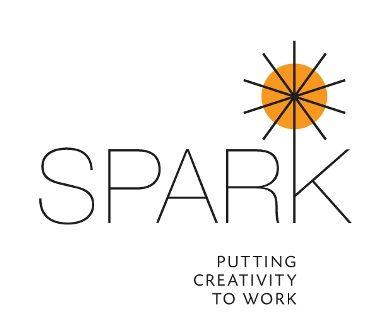Facilitated by COCA Teaching Artists and Business Strategists, Creativity Labs provide participatory arts-based learning experiences that focus on building competencies in leadership, collaboration, communication and ideation.
Risk Taking and Flippin Determination
These
rapidly changing times demand strong decision making and perseverance. If you
have great ideas and need to summon the courage to initiate them, this workshop
will help you build that important skill. Through the low wire, stilts,
juggling and aerial work, we will learn strategies to build consensus around
our most powerful and outlandish ideas. Led by Josh Routh and Rik Nemanick.
Improvisation and Collaborative Communication
Identify
and use tools that move teams forward such as active listening, building trust
and accepting offers through improvisational theatre exercises. Break the patterns and internal obstacles to
effective group work and team dynamics through better meetings. Participants
will learn and practice the “rules” of improvisation and ways to apply those
strategies to hold better brainstorm sessions and work in groups more
effectively. Led by Ed Reggi, Judy Dubin and Darrell Barber.
Sketchbook Discoveries
Developing
and keeping a disciplined, quality sketchbook is a great way to capture and
explore an individual’s creative ideas. Visual communication is an important
early element of innovation and sketch strategies give you a clear way to
demonstrate your ideas during their formation. In this workshop, we will
explore a variety of sketchbook strategies for developing and igniting ideas
and leave with a sketchbook to maintain and continue to develop. Led by Jennifer James and Kathy Oughton.
Productive Critique
In
the arts, critique serves an important function in the creative process.
Discover elements of both giving and receiving feedback by participating in
performance-based production and critique. Focus will be on formative creative
process as we put a theatrical work on its feet. Then we’ll dissect the “play
review” to learn a three-step process for implementing effective critique,
providing performance reviews and moving group projects forward. Led by Shanara Gabrielle and Kathy Cramer.
Collaborative Design
Participants will learn the steps of the creative
process and work in small randomized groups to create a visual art project that
meets a specific goal, aesthetic consideration and conforms to a set of restraints. They will
experience the importance of visual and verbal communication, prototyping,
quick decision making and iteration as early elements of innovation and group work.
Reflection will focus on strengths and challenges in group project work and
ways to ensure that the best ideas are heard and implemented. Led by Maria Ojascastro and Karrie Carlin.
Speak the Speech
Participants will be introduced to the techniques performers use to stay calm, convey ideas, and inspire audiences. Exercises will cover articulation, projection, breath control, posture and physical presence. Participants will also learn what important elements define a great speech. Led by Lee Anne Mathews and Stacey Fitzgerald.
Relevance Redefined
Participants will explore how to maintain trust and authenticity while shaping relevant communications for various audiences. This session will focus on the methods theatre professionals use to update classic text for contemporary audiences. Participants will work with a piece of Shakespearian text and select from existing images or create their own to begin shaping a relevant setting for the play. Led by Alec Wild, Robert Mark Morgan, and John Davis. 





